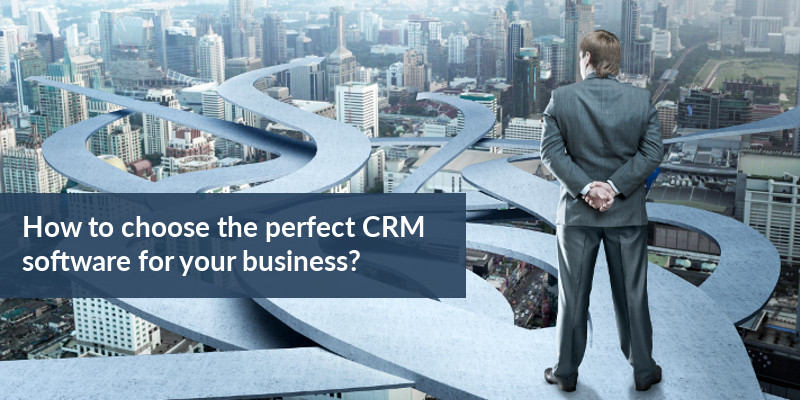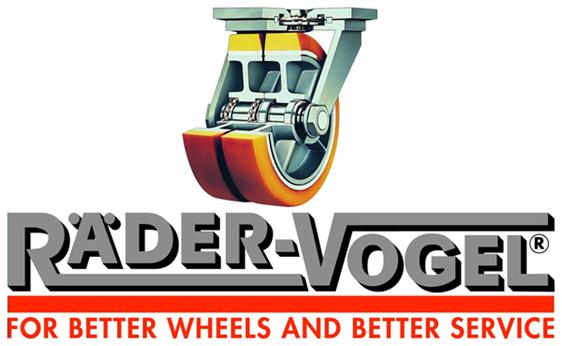CRM aka customer relationship management is the need of the hour for every business. It facilitates the user to save and manage information pertaining to current as well as prospective customers. In fact, nothing can beat a well-chosen and well-integrated CRM system when it comes to optimize sales cycle. Luckily, a growing number of CRM vendors have lowered the bar, so that businesses with as little as 10-12 employees can also reap the benefits of this tool. It works great to service existing patrons as well as in retaining them. Further, CRM is a superb tool to transform prospects and leads into customers. Simply put, businesses ought to think CRM as a fine mix of a filing cabinet, lead tracker, sales assessment tool, task manager and email system, all fused together to help drive sales and strengthen customer-business bond. Nevertheless, with the downpour of CRM vendors these days, choosing the perfect CRM can be a daunting task for businesses hotfooting to pick the best one.

- Why is it required?
Business owners and managers ought to ask themselves: why they need a CRM? For example, is it required for customer service, marketing, sales forecasting or for all of them? Whilst CRM is greatly used by salespersons for accessing customer data on the go, but it is also of great use when it comes to enhancing customer service, fortifying customer relationships and optimizing marketing campaigns.
A well-chosen CRM system coupled with robust integration is the secret for a successful CRM rollout in an organization. Nonetheless, it is also equally imperative for a business to decide the goals that it intends to achieve with the system.
- Is it to make business operations more organized and optimized?
- Is it to receive actionable insights pertaining to sales to aid in sales forecasting?
- Is it to keep a track of the customer details, deals, opportunities, leads, contacts, etc.?
- Is it to boost productivity and achieve scalability for critical business operations?
- Pre-confirm the cost and implementation turnaround
It is as simple as it gets! The more advanced features, the more a business will have to shell out. Thus, ensure it suits the budget and business preferences.
Talking about implementation, few systems require a bit longer, whereas some are done at warp speed. Here, it is advisable to ask potential vendors about the implementation time and the associated cost. Also, it is suggested to take into account other business events, commitments, etc. that might get in the way of implementation.
- Check for User-adoption rate
Make sure to get a CRM software, which the stakeholders and all the intended users will actually use. The system ought to simplify intricate processes and reduce friction as much as possible.
- Use a realistic approach to provide the users with exactly what they require
- Avoid imposing a complex-to-use system
- Ensure that the system offers seamless interface and is easy-to-use
- Understand customisation options
Requirements for CRM vary from business to business and thus, it is always a wise thing to ask vendors for customisation options. Decide what customisations would be required and what sort of support is available for the same along with the cost.
- Is the system mobile-friendly and cloud-based?
In today’s fierce business environment, businesses crave to empower their staff with seamless mobility so that they can access the system even when on the run. Therefore, ensure that the system is mobile-friendly as well as cloud-based for ease of access and mobility. Also, confirm about data security and transparency for a cloud-based system.
- Check for Integration possibilities
Is it possible to integrate the chosen CRM software with the existing systems and solutions in the company? Often, SMEs tend to use a CRM system mainly as a tool to manage contacts and prefer integrating it into an existing emailing system. In fact, integrating CRM with other existing systems such as accounting software helps greatly to provide more richer and actionable reports. Thus, ensure that the system is integration-friendly and would work seamlessly when merged with existing enterprise management systems.
- Try it before buying it
Take the system for a test drive before actually buying it. Ask the vendor for a comprehensive demo and allow all the prospective users to explore the system thoroughly. It is imperative to understand how the system works and learn its capabilities. Make sure the system is user-friendly and comfortable to use for reaping its benefits in the long-run.
- Don’t overlook scalability
A perfect CRM system is the one that grows with a business. For instance, a system integrated this year might not work the same way five years down the line. Therefore, it is eminent to get aboard a scalable CRM that will scale seamlessly with business growth.
Tips
- Select a CRM system depending on the number of employees intended to use it. For a business with multiple sales teams, a sound tip is to opt for a CRM system that supports multi-user and multi-geography functionality.
- Always go for a system that meets specific business requirements and processes. Also, consider the type of system. Some CRM systems are channelized for B2B use, whereas some are steered for B2C purpose.
- Pre-identify the insights and key metrics expected from the system and ensure it provides those.
- Take into account the existing software and hardware in the organization prior to a full-fledged CRM rollout.





